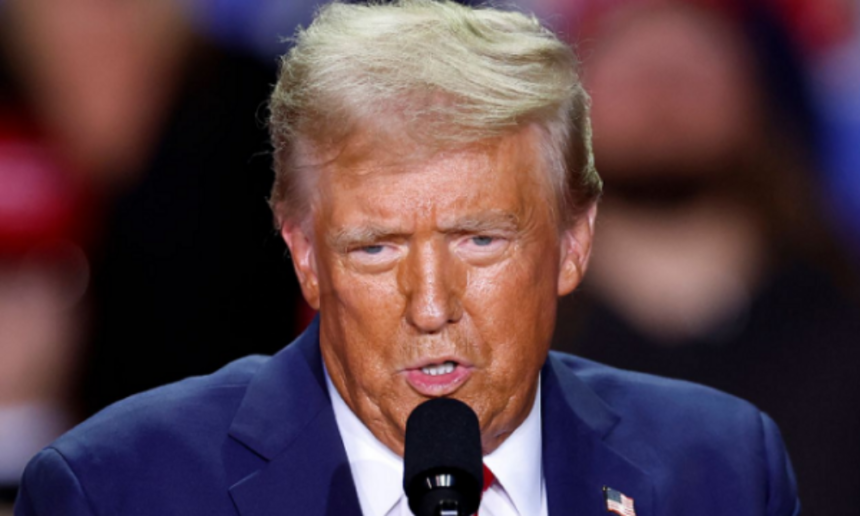As Donald Trump prepares for a potential return to the White House, concerns over the future of Germany’s security have emerged. Trump’s stance on defense and his relationship with NATO, especially with European allies like Germany, is set to shift the balance of power, potentially leading to more strain in transatlantic relations.
Trump’s Unpredictable Stance on Security
German officials are growing increasingly concerned about Trump’s unpredictable approach to foreign policy. The former president’s past criticism of NATO and European allies, including Germany, leaves many wondering whether he will repeat his combative rhetoric or escalate tensions with the alliance once again. The uncertainty surrounding his stance on NATO raises serious questions about the future of the United States’ security commitment to Europe.
German Foreign Minister Annalena Baerbock recently offered Trump a “partnership and friendship,” hoping to establish trust in difficult times. However, concerns remain about whether the U.S. under Trump would continue to uphold NATO’s core principle of mutual defense.
Germany’s Dependency on NATO
For Germany, NATO has long been a pillar of security. Despite a strong Bundeswehr (German Armed Forces) with around 180,000 soldiers, Germany’s military capability has been criticized as underfunded. The country heavily relies on NATO for its defense, particularly given the limited size of its own military forces and the growing threats from Russia and other global adversaries.
Trump, however, has previously suggested that European nations, including Germany, should do more to fund their own defense. He has repeatedly claimed that the U.S. pays too much into NATO and has questioned the alliance’s cost-effectiveness. Under his leadership, a significant shift in America’s approach to NATO could jeopardize Germany’s security if the U.S. reduces its defense commitment to Europe.
Trump’s Focus on “Burden Sharing”
A central issue for Trump’s foreign policy has been “burden sharing” within NATO, urging European nations to increase their defense spending. Germany, which has historically spent less on defense than the NATO target of 2% of GDP, has faced pressure from both Trump and other NATO members to meet this target. In response, German Defense Minister Boris Pistorius emphasized that Europeans must take greater responsibility for their own security, calling for improved defense capabilities across the continent.
With a potential Trump presidency, Europe may be forced to invest more in its own defense infrastructure. However, Germany is currently facing a political crisis that may delay such investments. If Germany does not significantly increase its defense budget, it risks falling back below NATO’s spending requirements, further straining relations with its allies.
Trump’s “America First” Agenda Threatens NATO
Under Trump, Europe has already seen a shift in its importance in global geopolitics. While Europe remains a secondary priority compared to China and the Indo-Pacific region in Trump’s view, the need for NATO’s collective defense could be sidelined in favor of American self-interest. If Trump follows through with his “America First” agenda, Germany and other European nations could be left to fend for themselves in times of crisis.
Moreover, Trump’s emphasis on financial transactions could create a transactional view of NATO, where countries are expected to “pay” for protection. This could undermine NATO’s fundamental principle of solidarity and mutual defense, posing a significant threat to the alliance’s credibility.
Will Germany’s Defense Budget Suffer?
Germany has recently committed to spending 2% of its GDP on defense, fulfilling NATO obligations for the first time in decades. However, this spending was made possible only through a special fund of 100 billion euros allocated to the Bundeswehr following Russia’s invasion of Ukraine. This fund is expected to run out by 2026 or 2027, and the next German government will have to make difficult decisions about whether to maintain or increase defense spending.
Failure to do so could result in Germany once again falling short of NATO’s targets and facing criticism from its allies, including the U.S. Under Trump, such shortcomings could prompt further reductions in U.S. troop deployments in Germany and Europe, weakening the security infrastructure on the continent.
Ukraine’s Future Security Aid at Risk
Another area of concern is the U.S. support for Ukraine. Trump has consistently criticized the U.S. role in aiding Ukraine and has expressed doubts about the long-term commitment to providing military assistance. As the largest donor of military aid to Ukraine, the U.S. plays a critical role in the country’s defense against Russian aggression. If Trump cuts or redefines U.S. military support for Ukraine, Germany and its European allies may struggle to fill the void, potentially leaving Ukraine vulnerable.
Experts warn that the lack of coordination and resources to sustain Ukraine’s defense could have dire consequences for European security, especially if Trump’s administration seeks to prioritize other global interests over supporting Ukraine’s fight for sovereignty.
A Dangerous Gamble for NATO
If Trump were to return to power and initiate a deal with Russian President Vladimir Putin, European leaders may be sidelined in negotiations, creating an environment where European security concerns are ignored. As security expert Ulrike Franke from the European Council on Foreign Relations cautioned, any such deal would likely bypass Europe’s interests, further exacerbating tensions within NATO and weakening the alliance.
For Germany and its European allies, the prospect of a Trump-led U.S. undermining NATO’s credibility is a frightening possibility. The risk of being excluded from critical security decisions and left to handle defense issues independently could leave Germany vulnerable and create an even more unstable geopolitical environment.
Conclusion: Europe’s Security in Question
As Donald Trump prepares to take office once again, Europe’s security landscape faces uncertain and potentially dangerous shifts. NATO’s future, Germany’s defense capabilities, and U.S. support for Ukraine all hang in the balance as the Trump administration takes shape. The European Union will have to quickly adapt to these new challenges, ensuring that its defense policies are robust enough to withstand the shifting priorities of the United States under Trump. For Germany, this means increasing its own defense investments and forging stronger regional alliances to secure its place in a world where American leadership in NATO is no longer a given.







